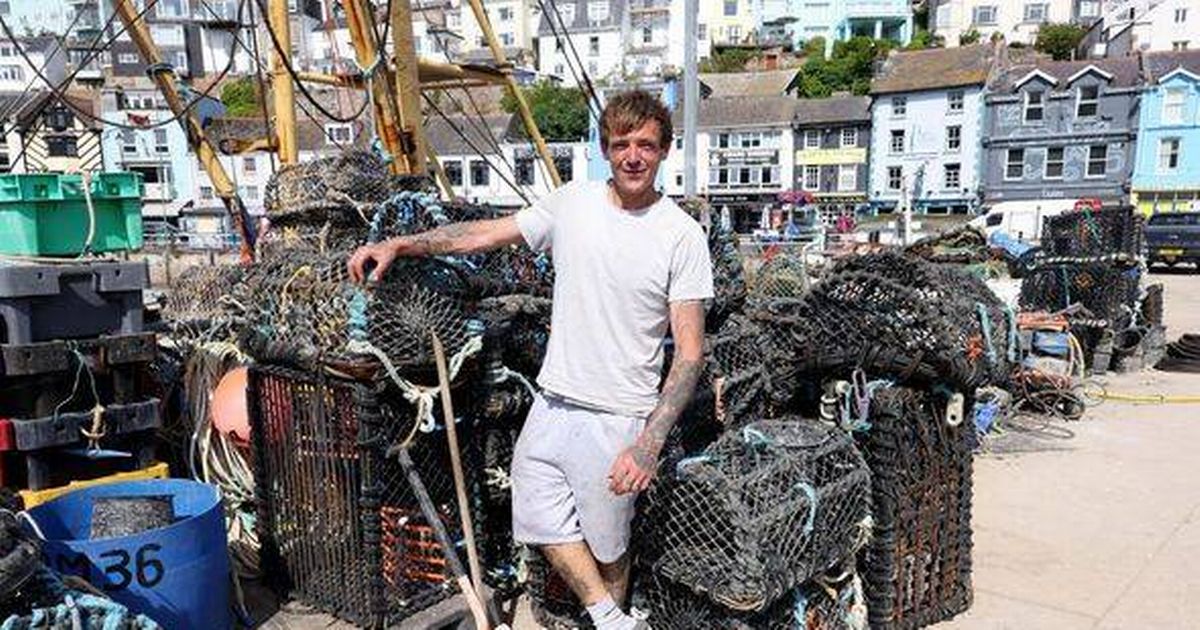Locals say Brexit isn’t the main issue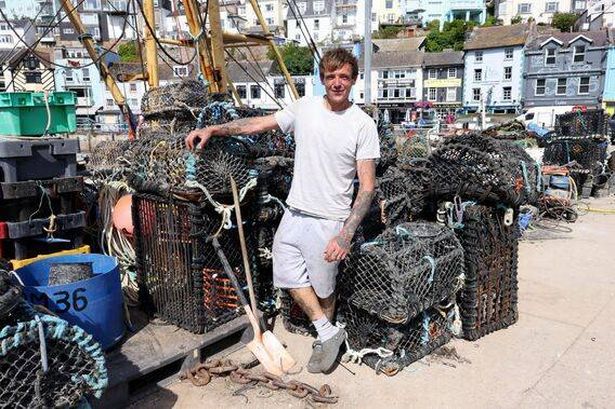 Lewis Maine has always been a crab fisherman (Image: Jonathan Buckmaster)
Lewis Maine has always been a crab fisherman (Image: Jonathan Buckmaster)
In a charming seaside town in Devon, the renowned fishing industry is being pushed to its limits not only by post-Brexit agreements but also by domestic rules and regulations that are making survival increasingly difficult for businesses.
The high cost of qualifications for newcomers, stringent rules for smaller boats, and fishing quotas are among the factors contributing to an uncertain future that some fear may be grim.
However, despite palpable frustration, there’s a robust sense of pride and passion in Brixham, England’s largest fishing port by value.
Our colleagues at The Express paid a visit to Brixham to find out how locals are coping with the fishing industry.
The fishermen describe their profession as deeply fulfilling, offering a unique sense of freedom that few other jobs can provide.
Many express a wish for it to be easier for young people to enter the trade, citing current costs as a barrier.
The rules are also harsh on small, single-boat operations, which find it hard to compete with much larger commercial vessels.
As we stroll through the pastel-hued town that wraps around a bustling fishing harbour, we learn about how the industry has evolved, and what locals envision for the future.
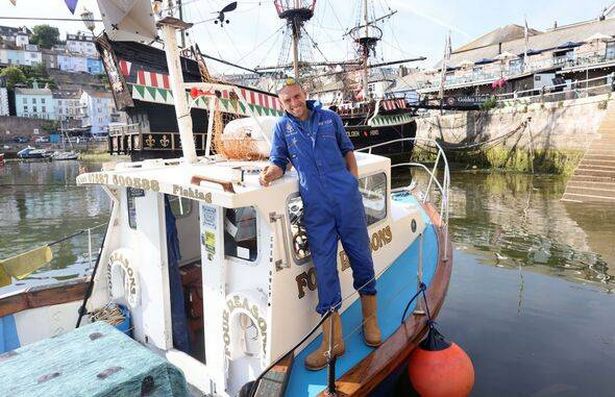 Tristan Northway has now had to change career to the tourism industry (Image: Jonathan Buckmaster)
Tristan Northway has now had to change career to the tourism industry (Image: Jonathan Buckmaster)
Tristan Northway shares with us that the escalating costs and regulations compelled him to abandon his fishing career after 27 years, during which he had worked on trawlers, owned his own boat, and even established a business selling fish directly to customers.
He shares with us that it’s “getting even harder” for single-vessel operations, which he was part of before selling up when his 8-metre boat failed to comply with the stability regulations introduced by the Marine and Coastguard Agency in 2021 for vessels under 15 metres [aimed at reducing the likelihood of smaller boats capsizing].
“I didn’t give up. I fought for it. And eventually just had to step to one side and just say OK, and do something else,” he recounts. “Unless I had a really deep pocket, I didn’t want to be climbing out of a hole that I was already deep into anyhow.
“I’ve cut my losses and started something else, and it’s a shame because the boat that I had at the time was a huge part of my life. To just push that to one side and start doing something completely different, it was hard.”
18 months ago, he pivoted to the tourism sector, now offering trips for passengers to fish for mackerel and discover Brixham from the water.
The former fisherman describes his new role as “more of a job than a way of life now”, noting “there’s no one coming into the industry,” and he envisages a future where fishing is dominated by “multipurpose, highly efficient, small boats” operated by larger firms.
Tristan observes that these companies have the means to adapt small boats for tasks typically reserved for bigger ones – a luxury beyond the reach of many small-scale fisheries – pointing out that inshore boats under 10 metres are now nearly £1 million, a stark increase from the previous £100,000 price tag.
He remarks: “It’s a lot easier for the government to issue out quotas to a handful of boat owners. It might not happen straight away, but you can definitely see a decline in small inshore fisheries.”
Like many we’ve spoken to, he notes a shift in employment practices with many companies now hiring overseas crews, which could potentially alter the town’s economic foundation from fishing to tourism.
He details: “You used to have English crew that would come out and drink in the pubs, and take their missus out through the winter, just keep the local businesses just ticking over. Now we haven’t got [that] because the crew stay on board the boat.”
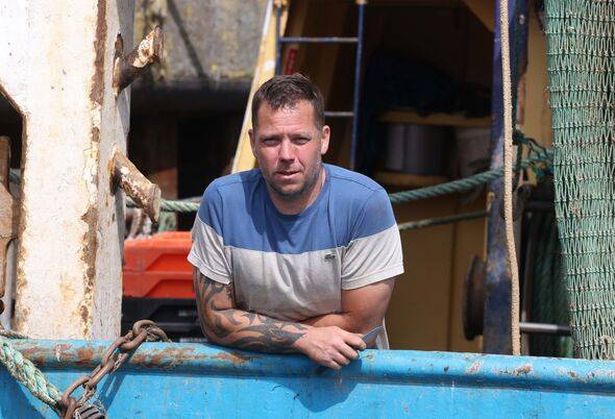 Shaun Sturtridge has worked as a fisherman his whole life(Image: Jonathan Buckmaster)
Shaun Sturtridge has worked as a fisherman his whole life(Image: Jonathan Buckmaster)
During our conversation with Shaun Sturtridge, a seasoned fisherman who has progressed from deckhand on a 28-metre boat to owning his own small vessel, he shares his concerns about domestic regulations, which he views as a more significant problem than EU vessels fishing in UK waters.
His own boat, which he says has been safely fishing for 22 years, was deemed unsafe due to new stability criteria set by the MCA, and he estimates it will cost £150,000 to meet these standards, approximately the same amount it cost him initially.
He points out that safety regulations are not enforced retrospectively on other older modes of transport; for instance, cars that were not originally fitted with airbags are not mandated to retrofit them.
In a perfect world, he would welcome genuine transformation within the sector: “The MCA has to start playing ball, and then quotas have to be made readily available to the individuals who want to go forward.
“They all moan there’s nobody in the industry anymore, but if you look around, all the young lads, they’re all on boats this size now. They used to be on big ones, but there’s no end goal.”
He explained that whilst captains of larger vessels earn decent wages, they face the prospect of having no successors to inherit their enterprises, as everyone now operates smaller craft, whilst intricate regulations mean each sector must comply with varying requirements.
“You’ve got the under tens competing with the big boats because of the quota, and then you’ve got the crabbers, whelkers, everybody, there are rules for such different things,” he adds. “Everybody’s just at each other. There’s no agreement. We’re not unified, are we?”
Regarding French fishermen being permitted access to these waters, he was “not really” concerned. “We got more sh*t in this country. If you look at all the other countries with a fishing industry, they’re not like us, we’re so divided.”
Whilst he believes Brits should be granted the same mile radius as the French, he notes: “It doesn’t really hurt us, you know?”
He explains they only venture into UK waters when “it’s absolutely screaming a gale” for safety reasons, departing once conditions improve.
Tristan voiced his discontent regarding the extension of EU fishing rights in UK waters until 2038, a significant deviation from the original Brexit agreement’s timeline.
His main concern lies with the stability rules.
He shared his frustration: “Now with old Starmer, they’re still allowed into our six-mile limit, but we’re not allowed into their 12.”
Tristan believes that ideally, each side should fish exclusively within their own territorial waters. He observed: “It’s always been the same with the French fishermen. When they don’t agree with something, they all get together, kick off, and they’re listened to.”
He expressed a sense of injustice comparing the potential repercussions for British and French fishermen: “If the English fishermen did what the French did, we’d probably have our licences revoked because we stopped the ports. If we did that here, well, there’d be f***ing uproar man. But the French, they just do what they want, basically.”
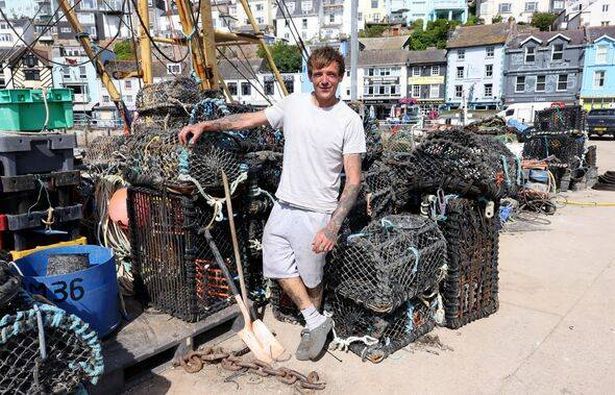 Lewis Maine has always been a crab fisherman (Image: Jonathan Buckmaster)
Lewis Maine has always been a crab fisherman (Image: Jonathan Buckmaster)
In a conversation with crab fisherman Lewis Maine, who has recently relocated from Guernsey due to restrictive regulations, we learn about his concerns for the industry. At 35, having fished since school, he notes a lack of encouragement for the younger generation to join the fishing trade.
Lewis points out that rising sea temperatures are altering marine life patterns, citing the appearance of species like tuna, slipper lobster, and notably octopus – which pose a threat to his crab catches – in the English Channel.
Despite facing numerous obstacles, he remains determined to continue in the sector, stating: “We’ve just got to adapt to what’s going on,” whilst jokingly suggesting he might even become an octopus fisherman in years to come.
He hopes the fishing industry could be presented more favourably, explaining that “being on the boat is freedom” and it’s “in his heart.”
His companion interjects: “It’s nice having the freedom. We see things that we take for granted that other people would never see in their life.”
The friend continues, noting that administrative burdens and expensive certification costs have “stopped the young people coming” whilst previously, “you’d get a young lad just turn up on the quay, asking ‘can I come out and try it?'”.
Darren Whelen, a fishmonger from Brixham, has observed similar patterns amongst the younger generation. Whilst skilfully preparing a fish, he explains: “We’re very much a society of, get the grades and get the office job.
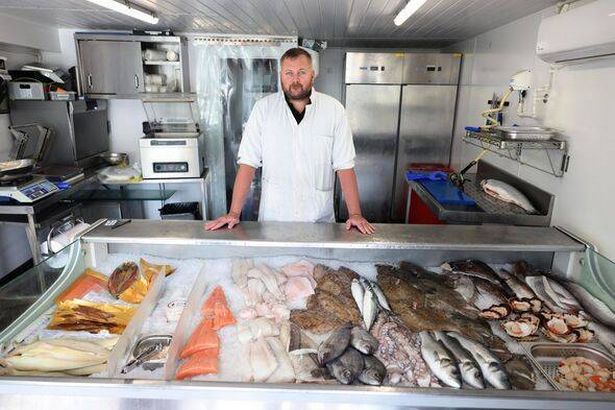 Fishmonger Darren Whelen believes young people are not helped into the industry(Image: Jonathan Buckmaster)
Fishmonger Darren Whelen believes young people are not helped into the industry(Image: Jonathan Buckmaster)
“No one’s been talking about, actually there are other jobs and trades that need to be done. You don’t necessarily need a formal education here, you just need common sense and just get on with it.”
Beyond the obstacle of funding qualifications, he believes social media’s earning potential has altered young people’s career aspirations, meaning few are willing to begin on minimum wage and progress gradually.
He continues: “The last 10 years, I’ve worked for various places, and we’ve struggled with personnel. It’s very hard to get somebody who’s 17 or 18 from school to apply.
“I think getting young people in is very difficult. It’s a struggle and I don’t know what’s best because it’s not just us feeling it, it’s the hospitality sector too.”
He shares with us that although the work is tough, it can be gratifying, saying “if you’re happy to do the graft you’ll get paid, but you’ve got to do those years of graft”.
Expressing concern for the industry’s future, he feels it appears “bleak” and comments on how fishing seems to be used as a bargaining chip in EU negotiations, contrasting with Europe where he believes the industry holds more esteem. He remarks: “We’re an island surrounded by water, yet we don’t really appreciate that.”
Discussing the impact of quotas, he voices his apprehension: “My fear is how much longer we’ve got with the quotas that we’ve got. We’ve got 12 more years of quotas coming down. After those 12 years, what happens next?”.
He notes that reduced quotas have inadvertently driven fish prices higher, which he sees as beneficial for fishermen who are now earning what they deserve.
On the value of fish, he opines: “I think fish has been quite cheap for quite a long time. I don’t think we really appreciate it as a country what it takes to catch fish”.
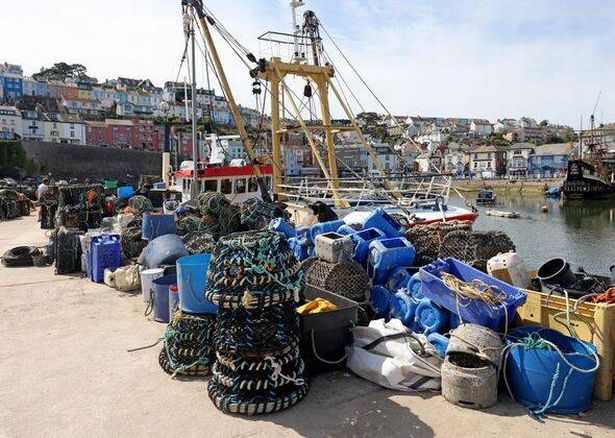 The town still hums with activity at the harbour front, even though it is pivoting towards tourism(Image: Jonathan Buckmaster)
The town still hums with activity at the harbour front, even though it is pivoting towards tourism(Image: Jonathan Buckmaster)
Strolling along the harbour, we encounter a boat maintenance worker who prefers anonymity and laments: “There’s no youngsters coming into it. They can go and flip burgers for £500 a week,” also pointing out that the situation is exacerbated by larger firms hiring predominantly foreign workers, creating language barriers.
He explains that young people show little interest in pursuing maritime careers, despite vessels being equipped “better than homes”, featuring wi-fi, washing machines, tumble dryers, fridge freezers and provisions onboard.
One aspect remains evident in the harbour town: the fishing industry continues to flow deeply through the veins of local residents.
Whilst post-Brexit arrangements may have dominated most headlines, the challenges appear multi-faceted, with domestic regulations creating equally significant obstacles.
For the sector to endure, fishermen seek more equitable regulations, alongside opportunities for the next generation to continue the heritage.
Outlining the Government’s efforts to bolster the nation’s fishing sector, a Defra spokesperson commented: “This Government is working with the fishing industry to promote British seafood and ensure we fish sustainably so the sector can thrive for generations to come.
“We have announced the £360 million Fisheries and Coastal Growth Fund to support the next generation of fishers and will work with the industry to target investment where it matters most.”
Addressing the stability rule concerns highlighted in Brixham, a Maritime and Coastguard Agency spokesperson responded: “Fishing is still one of the UK’s most dangerous jobs, with fatalities often linked to vessels capsizing. That’s why we brought in tougher stability rules in 2021 for boats under 15 metres.
“We’re also backing the next generation of fishers by funding free safety training through Seafish, helping young people get started in the industry safely and confidently.”
